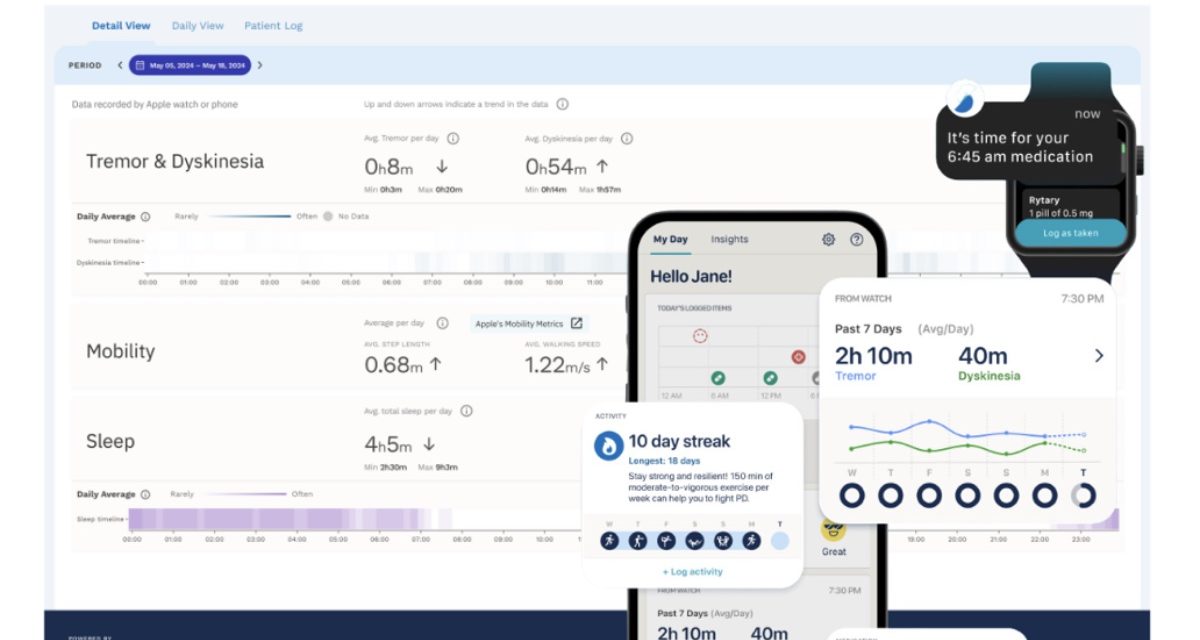Rune Labs, which specializes in precision medicine for Parkinson’s Disease (PD), has previewed the results of an ongoing nine-month research program involving a diverse cohort of 138 Kaiser Permanente PD patients across California. The patients had an age range of 39 to 88 years and a mean disease duration of six years. In the care management program, all patients used an Apple Watch and Rune Labs’ StrivePD app to record their behavior for at least six hours of data per day for seven days per week.
Patients with moderate severity (Hoehn and Yahr stage 2 & 3), bilateral symptoms and responsiveness to dopaminergic agents were included in the research. The research and poster were presented by Ro’ee Gilron, PhD, Lead Neuroscientist at Rune Labs, at the 2024 International Congress of Parkinson’s Disease and Movement Disorders on September 29 in Philadelphia.
“By taking a tailored approach informed by ongoing patient-specific data, we have seen substantial improvements in symptom management,” Gilron said. “With a significant reduction in ER visits, increased exercise levels, and enhanced participation in physical therapy, this preliminary data highlights promising and impactful benefits for patients, caregivers, and clinicians.”
Data collected included exercise and activity, sleep, falls and mobility, hospitalizations and medication compliance. Over 211,000 hours of data were collected and analyzed across 40,000 data points. The research found highly variable patterns in the number of “red flags” patients reported as well as mobility, tremor and dyskinesia patterns across the patient population. By better understanding these patterns, a 42% reduction in emergency room visits was reported by Kaiser Permanente with a corresponding 18% reduction in specialists’ time.
Gilron says that key findings are from the 138 Kaiser Permanente patients before and after joining StrivePD, headline data include:
- 42% reduction in emergency room visits.
- Movement disorder specialist visit rates reduced by 18%.
- 90% of patients increased their exercise.
- 52% of users exercised more than 150 minutes/week.
- 78% of patients reported better insights into their health for their clinicians .
- 80% of patients better adhered to their medication schedules.
- Patient engagement with AI was high: the equivalent of one-and-a-half novels worth of notes were generated by patients.
- Patients also felt more confident and were able to increase their exercise minutes significantly.
Article provided with permission from AppleWorld.Today




